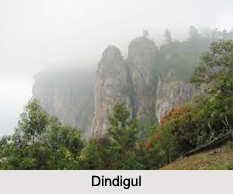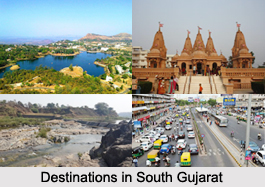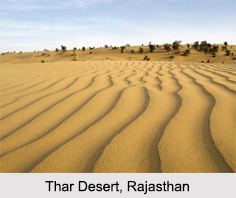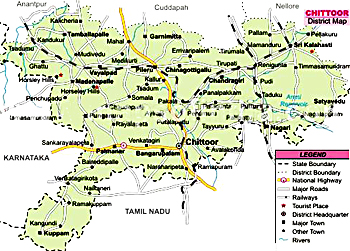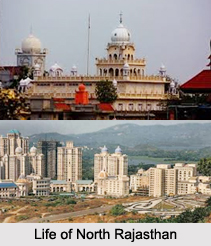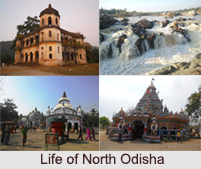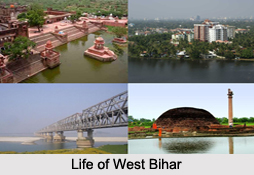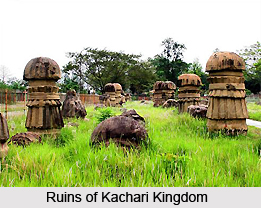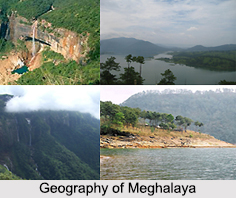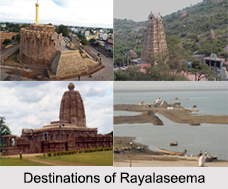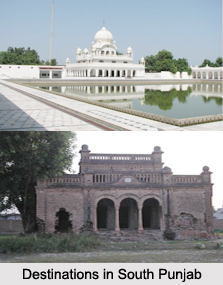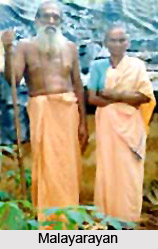 In earlier days a large scale of migration happened from other parts of Kerala and from the Neighboring Tamilnadu, to the District. That is the reason why Idukki is having a mixed culture.
In earlier days a large scale of migration happened from other parts of Kerala and from the Neighboring Tamilnadu, to the District. That is the reason why Idukki is having a mixed culture.
Idukki is the second largest place in Kerala where the most number of scheduled tribes exist. There are 245 tribal settlements in the District of which 74 are in Thodupuzha; 11 in Peermedu; 126 in Devikulam and 34 in Udumbanchola Taluks. Almost all the scheduled tribes are living in the extreme remote hilly banks and in the deep interiors of thickly growing forests of this district. According to the latest Census the number of tribal families inhabiting in the district is around 11516.
Some of the following clans are found in the scheduled tribes:
Malayarayan:
Among the scheduled tribes Malayarayans out class all the other groups in socio-economical and educational aspects. Renegades and traditional Hindus who follow the hereditary regulations and customs are included in this group. It has been seen that almost all the Government Servants and other employees are coming from this section of scheduled tribes by an evaluation taken in the educational and employment prospect. Their living places and surroundings always show the bright prospect of development. They have been always tried to dissolve with the then widespread socio-developmental programs.
Mannan:
This is a special and particular type of tribal with unique customs and hereditary traditions. They have a King and still continue to honor the King ship. The main areas where the Mannan families are staying are Adimali, Kattappana, and Nedumkandam Block Panchayats. Apart from that some of them also live in the areas of Azhutha, Devikulam and Idukki Block Panchayats.
They stay mainly in the forest inland and government allotted plots. When the government banned the deforestation these families made a great evacuation to the civilized places and are forced to restrict themselves in the allotted plots. But in this situation also they tried to maintain their own culture. For their livelihood they work in the allotted farmlands, they collect forest products, doing manual labor and cattle breeding as their occupations. Still they are trying to follow the traditional regulations.
Their literacy rate is very low in comparison to the national literacy rate. One of the notable features of the tribal people is that they lend their farm to the rich people and do manual labor in their own plots. Their economical stability and fundamental needs for a nominal living are below average and it is found that the surroundings are very pitiful and degrading if we make an honest evaluation. It is shocking to see that the Mannan men and women are over addicted to liquor and other intoxicants, and they live totally unhygienic life. Most of the Mannan families do not have a stable residence or the basic needs for a good living. As a whole it can be said that they do not possess any good habit and often remain addicted.
Muthuvan:
This is a special tribe mainly living in the deep and dense forest inland of Devikulam, Adimali, and Nedumkandam block Panchayats. They drink water from the deep forest streams, eat wild roots and thus spend their livelihood in a simple manner. They are exclusively different from the other division of the tribes in many factors.
They are very scared of being united with the other clans of the tribes and civilized people. They like to live a secluded life nurturing their own culture. They are illiterate, ignorant and very superstitions because of the fact that they live in the deepest parts of the forest. The lack of basic centres of health, education, and other facilities stop them to know about the necessities of life. Their economical, social and educational improvement is negligibly nil from many past years. Almost 90% of the people are living in bamboo huts. In recent days their attitude has been changed in many cases and they are constantly motivated for a better life and thus trying to develop socially and culturally.
Their women are strictly prohibited to have any relationship with the outside world other than their bamboo huts. They are totally secluded in the huts and not allowed to talk or meet other men. Literacy is a difficult term for them and to live a good life is something heavenly for them.
They begin consuming tobacco at an early age and more over their men are too much addicted to liquor and other intoxicants. They cultivate Ragi in their own farms. They have 3 to 10 acres of forestlands for cultivation. But the most unfortunate thing is that cardamom and other refined forest products they collect are being devalued and the mediators exploit Muthuvans devastatingly. Their ignorance in the modern farming methods and their inability to invest money for agriculture are being exploited. They have been continuously oppressed even though they work hard. Their huts are very much congested and stay close to one another. Their lack of awareness in sanitation and health programs put them in a contingent of infectious diseases and this lead to the untimely death of Muthuvans, which is very unfortunate.
Oorali:
This type is present everywhere in the Idukki district except in Devikulam and Thodupuzha block panchayats. They are very backward in educational aspects but possess hide bound customs and regulations.They usually rank third among the tribes in literary and basic educational areas. Agriculture is their main occupation while cattle breeding and collection of forest products can also be seen.
Paliyan:
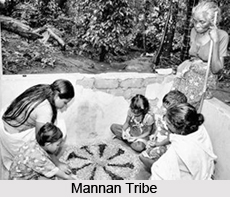 About 500 Paliyan families are staying in the Azhutha and Kattappana block Panchayats in Idukki District. They have very little farmlands and most of them are engaged in manual labor and in the collection of forest products. They have their own dialects but their literacy rate and basic educational prospects are considerably less.
About 500 Paliyan families are staying in the Azhutha and Kattappana block Panchayats in Idukki District. They have very little farmlands and most of them are engaged in manual labor and in the collection of forest products. They have their own dialects but their literacy rate and basic educational prospects are considerably less.
Hilpulayan:
They are the most backward type of tribes among the clans staying in the Marayoor and Kanthalloor Gram Panchayats of Devikulam block panchayat in Idukki district. Most of them are actually landless people. They stay in small huts in the banned secluded government plots and other forest areas. They do manual labor and as other income collect forest products. They speak Tamil and follow their own unique and hereditary customs. The type has their own primitive arts. Their educational level is absolutely nil. Due to the lack of sanitation facilities and better life prospects most of them are unhealthy. They are keenly interested in knowing and learning modern developments and programs of the world. They prefer to educate themselves or learn some jobs that may help them to earn a better income. One section of the Hilpulaya is traditionally skilled in the art of weaving.
Malapandaram:
In this districts a few Malapandaram families are staying in the Azhutha block panchayat. They are partially gypsy typed and also differ from other groups in language and custom. Their main occupation is the exchanging and collection of forest products. It is important to provide them the basic necessities of life to ensure their improvement in Socio-cultural and spiritual levels
Ulladan:
Ulladans are living in harmony with other tribes also except in the Devikulam, Azhutha and Kattappana block panchayats in the district. Regarding socio-educational and cultural developments they almost equalize with the Ooralies in status. Like other scheduled tribes they also engage in agriculture and in the collection of forest products; however some of them are serving as Government employees. Those among them who stay in the plains are doing woodcutting and yacht making.
Malayan:
Edamalayar in Kuttampuzha panchayat is the only place where this tribe exists. There is some controversy about the existence of this place like this area is still in Adimali block panchayat in Idukki district but officially recorded with Ernakulam district. Among the different kinds of jobs they do some of the important are Bamboo cutting, fishing, manual labor and forest wealth collection. Like Mannan tribe the Malayan also rent their farmlands and doing manual labour in it. They are keeping an average rate in educational and cultural programs. They prolifically consume alcohol and tobacco. They are found to be very unhealthy due to their morally degraded life.
Demography:
The total geographical area of this Idukki district is 4358 Sq. Km. There are four taluks under which there are sixty-four numbers of villages. The district is having only one municipality and eight development blocks while fifty-one panchayats and number of post offices are there.
Population and Literacy:
According to 2001 Census, out of the total population of 11,29,221 numbers, 5,66,682 numbers are male while 5,62,539 numbers are female and the total density is 259 Sq. Km. The growth rate of the districts is 6.96 and total child population is 1,34,177 in numbers. In this idukki district the number of Scheduled castes is 1,59,362 while scheduled tribe are 50,973 in number. The total literacy rate is 88.69 percent, which is given as 8,82,458. All these data were collected in 2001 census.
Plantations:
The modern history of the district starts with the beginning of European planters to this region. In 1877 Kerala Varma who was the Raja of Poonjar, sold 227 sq. miles of Kannan Devan Hills to a British planter named John Daniel Munroe. This gave birth to the Kannan Devan Hill Produce Company. Kannan Thevan is an Adivasi who showed the hills to the Planters and today Kannan Devan Hills is internationally known to the world. With out any communication the tract was largely unexplored and covered with thick forests. In 1878 the Maharaja of Travancore confirmed the sale. J.D Munroe formed the North Travancore Land Planting and Agricultural Society. The members of the society developed their own estates in various parts of the High Ranges. A.W Turnor at Devikulam area undertook the first cultivation in 1877.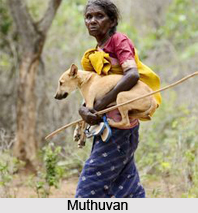
The innovators tried many crops such as Coffee, Cinchona, Sisal and Cardamom, before discovering tea, which is the best-suited crop for this area. A.H Sharp at Parvathi first planted tea by clearing 50 acres on a dense forest. This place has now become Seven Mallay Estate. In 1895 Finlay Muir & Company now known as James Finlay and Company limited purchased that area. The Kannan Devan Hills Produce Company Limited and the Anglo-American Direct Tea Trading Company Ltd. owned 28 estates in these areas. Other British owned the remaining 7 estates. No Indian Companies belong to this group.
The pace of development was accelerated with the entry of large business houses possessing capital and technical skill. Experienced tea planters were brought from Ceylon and large areas were planted with tea. Roads were opened as well as transport was organized, houses and factories built and production rose rapidly in the succeeding years. Later M/s Tata Finlay Ltd., a company incorporated in India, purchased the Tea Estates from them and is running them now, under the name M/s Tata Finlay Ltd. Their operation is mainly confined to Munnar - Devikulam area.
After the implementation of the Land Reforms Act, about 70,000 acres of Kannan Devan Hills Village were preserved from the Company. These lands were taken as excess land and that too without giving any compensation. It is also an exposed fact, which should not be forgotten that the deforestation process started in the High Ranges with the advent of Plantation industry by the end of 19th century. The evergreen forests, which existed earlier, were totally destroyed in the area and substituted with the present greenish carpeting of tealeaves.







